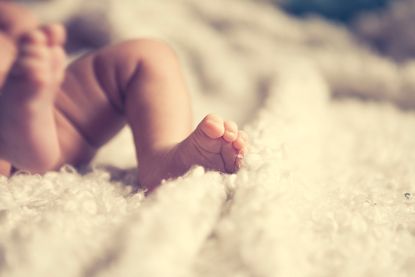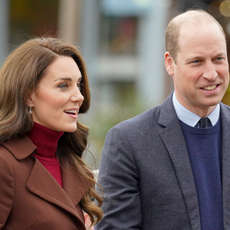The world's first 'three parent' baby has been born
Some suggest it may accelerate the creation of similar births in the UK...

Some suggest it may accelerate the creation of similar births in the UK...
The world's first baby created using what has been dubbed the 'three parent' technique has been born in Mexico.
According to New Scientist, the baby was delivered five months ago to Jordanian parents. A team of US experts carried out the procedure to allow a mother with Leigh syndrome, a fatal disorder that affects the nervous system, to deliver a healthy child.
The procedure was performed by taking the nucleus from one of the mother's eggs and implanting it into a donor egg that had its nucleus removed, before it is fertilised by the father's sperm. This allows it to retain the mother's healthy DNA but meant her mitochondrial DNA - which acts a lot like a battery for the egg but also carries the genes for Leigh disease - is replaced by a donor's.
Some have spoken out against the procedure and suggested that restructuring the egg's DNA is a form of playing God. Others have pointed to the fact that performing the treatment in a country without rigid regulations could be harmful as their is no follow-up for the child.
However, the researchers say this is an important step forward in allowing mother's with specific genetic disorders to give birth to their own children. And many scientists welcome the news.
It might now to be long before a similar technique is used to assist the birth of children in the UK, as the three parent technique was passed by British Parliament, so procedures can go ahead if the method is approved by regulators.
Marie Claire Newsletter
Celebrity news, beauty, fashion advice, and fascinating features, delivered straight to your inbox!
Professor Alison Murdoch, head of the Newcastle Fertility Centre at Life, Newcastle University, who heads up research in this area in the UK, shared his excitement for the announcement, explaining: 'If this baby has been born as suggested then that would be great news. The translation of mitochondrial donation to a clinical procedure is not a race but a goal to be achieved with caution to ensure both safety and reproducibility.'
While Dr Dusko Ilic, a reader in stem cell science at King’s College London, agrees, saying: 'This was an ice-breaker. The baby is reportedly healthy. Hopefully, this will tame the more zealous critics, accelerate the field, and we will witness soon a birth of the first mitochondrial donation baby in the UK.'
The leading destination for fashion, beauty, shopping and finger-on-the-pulse views on the latest issues. Marie Claire's travel content helps you delight in discovering new destinations around the globe, offering a unique – and sometimes unchartered – travel experience. From new hotel openings to the destinations tipped to take over our travel calendars, this iconic name has it covered.
-
 William promises to 'look after' Kate during her cancer treatment
William promises to 'look after' Kate during her cancer treatmentHe returned to work today and reassured royal fans
By Jadie Troy-Pryde
-
 Quick – the whole fashion team is adding these £36 crystal ballet flats to basket
Quick – the whole fashion team is adding these £36 crystal ballet flats to basketShining, shimmering, splendid
By Natalie Hughes
-
 Olivia Munn opens up about her medically-induced menopause following breast cancer diagnosis
Olivia Munn opens up about her medically-induced menopause following breast cancer diagnosis"I figured, as a woman, I can't escape menopause. So I'd rather just take it on now."
By Jadie Troy-Pryde